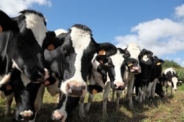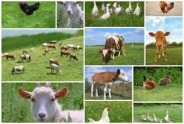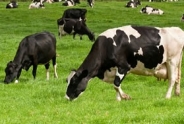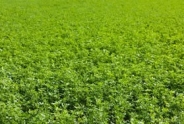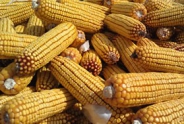Practical ways to decrease Somatic Cell Count
Jackson Wright, Dairy
Northwest New York Dairy, Livestock & Field Crops

Milk production is a function of mammary epithelial cell number and activity. In other words, the more actively producing mammary epithelial cells the more milk produced. When a cow gets mastitis, organisms invade the quarter stimulating an immune response. This process results in damage to the milk producing cells within the gland. Moreover, somatic cells are not exclusively white blood cells. Soma is latin for "body" and somatic refers to "of the body", meaning that somatic cells are cells of the body and actually consists of multiple cell types; including white blood cells, cells lining the milk ducts, and milk producing mammary epithelial cells. As the infection gets resolved the damaged milk producing cells in the udder get replaced with scar tissue, decreasing the milk production potential of the infected quarter. Put simply, as SCC increases milk production decreases (See Figure 1).
The question then becomes how can we practically decrease SCC? Many times the answer lies in the milking routine. Briefly, udder preparation needs to be firm but not harsh. Using the calf as an example, a calf will suck and head-butt the udder until milk is letdown. This cow/calf interaction causes the release of oxytocin into the blood stream. Once oxytocin reaches the mammary gland it acts on the myoepithelial cells to initiate milk letdown. This entire process takes approximately 60-90 seconds. Therefore proper udder preparation should consistently clean and dry the teats while timing attachment of the milking unit with peak oxytocin release. If the milking routine is painful, adrenaline may be released which can counteract oxytocin and prevent milk letdown. Finally, post dipping should ensure complete coverage of the teat. Adequate post-dipping should result in excessive post-dip pooling near the teat end orifice, providing a barrier to entry until the teat sphincter can close.
Often breakdowns occur when the milking unit is attached to dirty or moist teats. Many times this is the result of milking personnel using dirty gloves between cows. Consider this: the recommendation for milking personnel to use latex gloves stems from the fact that bacteria are present on our skin. Using gloves makes it harder for bacteria to "stick". However, if gloves become contaminated with manure they too harbor pathogens. This creates a dilemma because a consistent milking routine can be difficult to maintain if milking personnel are constantly changing gloves. One way to address this issue is to mix rubbing alcohol with water at a 70:30 ratio of rubbing alcohol to water, in a standard spray bottle. This can be used as an effective hand-sanitizer, disinfecting latex gloves that otherwise should be changed. Since this is an alcohol based mixture, this quickly evaporates, making it a practical way for milking personnel to clean their gloves during milking. Similarly, because this can be performed quickly milkers can maintain a consistent milking routine while improving hygiene. This can provide additional incentives for milk quality premiums and improved milk production throughout lactation.
Figure 1 (pdf; 55KB)
Upcoming Events
2026 Forage Congress
March 12, 2026
Nunda, NY
Due to the unprecedented winter storm that recently impacted travel conditions across the region and U.S., combined with extreme cold temperatures and associated safety concerns, Forage Congress was postponed out of an abundance of caution. This decision was made with the safety of our participants, speakers, staff, and venue partners as the highest priority.
We are pleased to officially announce that Forage Congress has been rescheduled for Thursday, March 12, 2026, and will be held at The Nunda Ranch as originally planned.
Address: 2278-NY 436, Nunda, New York 14517
Sponsorship opportunities, vendor participation, and event registration are now open. We are excited to reconvene this important educational program and look forward to welcoming producers, industry partners, and speakers for a full day of applied, research-based forage systems programming.
From Dry to Fresh: Transition Cow Management Training
March 12, 2026
Albion, NY
This is a 1-day hands-on training in transition cow management offered in English and Spanish.
TENTATIVE- 2026 Dairy Feeder School - November 2026
November 11 - November 12, 2026
Dates are TENTATIVE for 2026! More Details to Come!
Join the Regional Dairy Specialists for a one day on-farm training for dairy farm feeders. The training will be offered in English and Spanish and will feature stations with hands-on activities and demonstrations.

